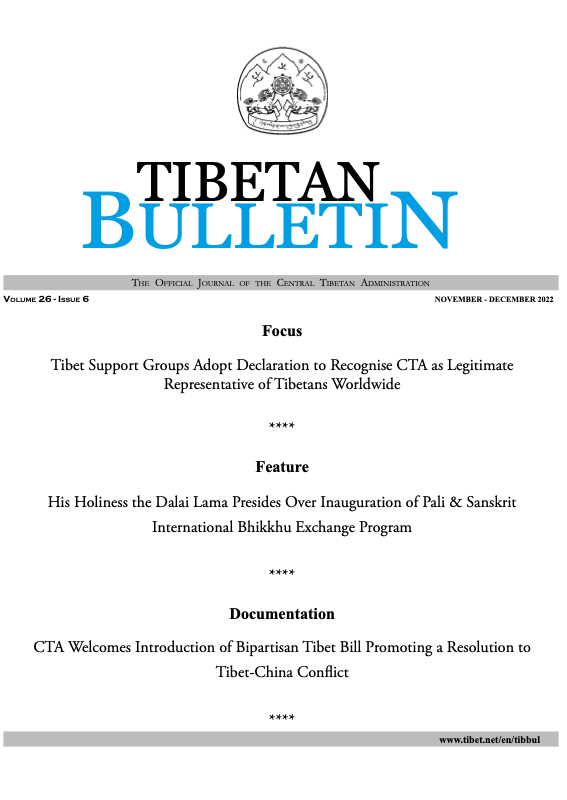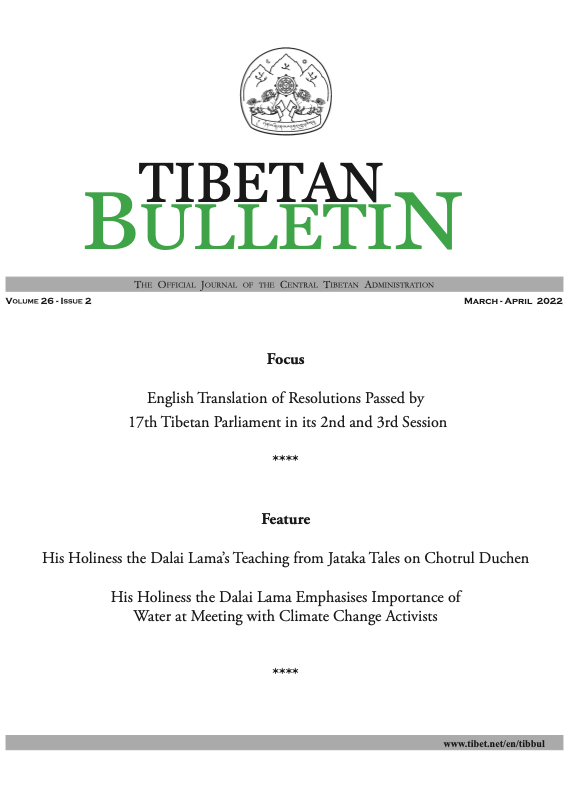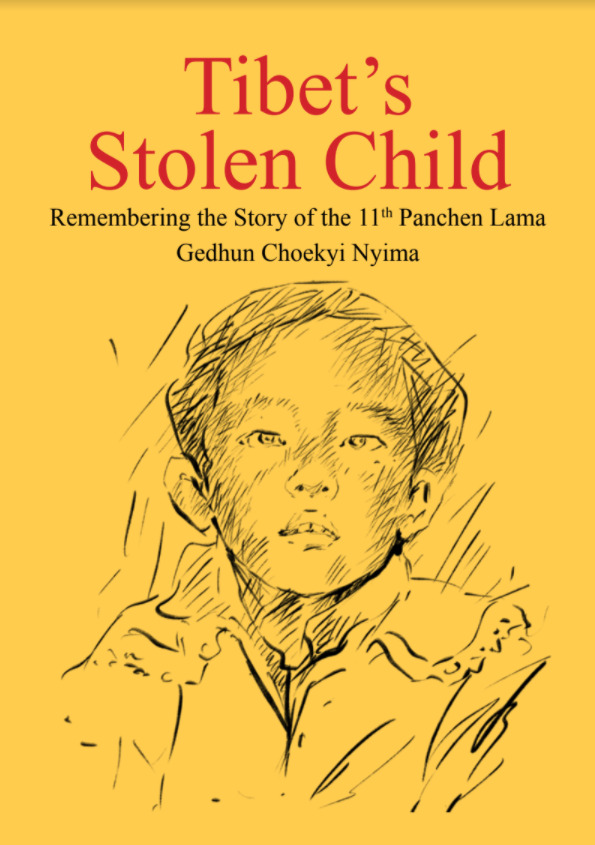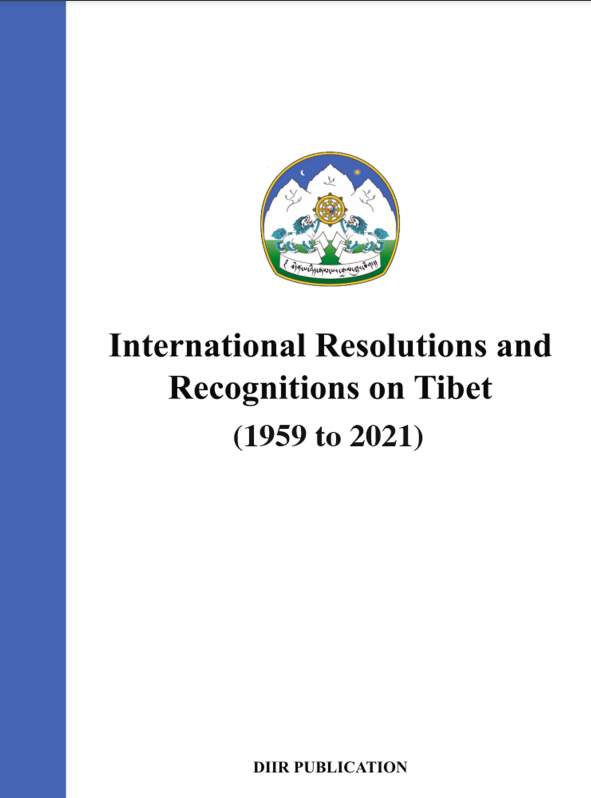Statement of His Holiness the Dalai Lama on the Fifth Anniversary of the Tibetan National Uprising Day, 10 March 1964
For over nine years the peace-loving people of Tibet have tried their
utmost to come to an amicable settlement with their invaders; but
nothing that they could do would satisfy the ambition and avarice of
the Chinese conquerors. Tyranny and oppression prevailed over Tibet,
and finally the unarmed citizens of Lhasa rose in a body against the
violence of the Chinese authorities, and the torch of freedom was lit
once again in every corner of Tibet. Since then my unfortunate people
have made great sacrifices. Thousands of them have been massacred.
Thousands of them have been rendered homeless. Thousands of them have
escaped to neighbouring States. But the barbarous atrocities, even to
the extent of exterminating the race and religious belief of the
Tibetans, still continue, and the struggle of the people still goes on.
Today marks the fifth anniversary of the spontaneous upsurge of my
people, we must pay our humble tribute to all those stalwart champions
of liberty and faith who have fallen victims to the armed might of the
Communist government of China. Today I send my special blessings to all
those who are engaged in a bitter campaign against the opponents. I
congratulate all my people for their courage and determination in their
struggle for political and religious freedom and pray for their
success. Our way may be a hard and long one, but I believe that truth
and faith must ultimately prevail.
Many thousands of our people have found refuge and shelter in the
neighbouring States, particularly in India which we have always
regarded as our Holy Land. The problem of the refugees has been
extremely difficult, but with the ready assistance of the government of
India and other friendly countries, we have been able to solve their
difficulties to a large extent. However, a great deal still remains to
be done, particularly for the unfortunate children who have been
deprived of the love and care of their parents. But I hope and trust
that with the help and encouragement of many of our friends here in
India and elsewhere we shall be able to arrange for their proper
education and upbringing. On this occasion I would like to impress on
all those who have been fortunate enough to escape from the persecution
of the Chinese authorities not only to strive for their own benefit but
also for all those friends and relations who have been left behind. At
this critical juncture in our history it is our duty to do all that we
can do to help our fellow countrymen in Tibet and to render them every
possible assistance in their ceaseless struggle for freedom and
justice.
I must also take this opportunity to express on behalf of my people our
deepest sense of gratitude to all those freedom-loving States which
have so generously espoused our cause in the United Nations. I would
particularly mention the representatives of Malaysia, Thailand, Ireland
and El Salvador. The first resolution which was passed by the General
Assembly called for respect for the fundamental human rights of the
Tibetan people and for their distinctive cultural and religious life.
The second resolution renewed the call for the cessation of practices
which deprived the Tibetan people of their fundamental human rights and
freedoms including their right to self-determination. It also expressed
the hope that member States of the United Nations will make all
possible efforts towards achieving the purposes of the resolution. I
have myself also made appeals to the Chinese government to bring to an
end the inhuman persecution of the people of Tibet and to agree to a
peaceful settlement of the Tibetan problem. But I deeply regret to say
that these appeals have failed to have the slightest effect on the
attitude and policy of Communist China. On the contrary, in order to
enlist the opinion of the world in support of their pretensions, they
have come forward with a proposal against imperialism and colonialism.
I, therefore, consider it necessary to point out that the present
Chinese regime in Tibet has been described by an eminent statesman as
“the worst form of colonialism”. The free nations of the world have
rightly condemned the suppression of the coloured people in South
Africa, but the form of oppression and persecution which the Chinese
invaders have adopted against the people of Tibet are a thousand times
worse than the system of apartheid. Nowhere in the world, even under
colonialism of the worst type, has a government ever used public
torture as a political deterrent as the Chinese have and are still
doing in Tibet. In this connection, I would like to emphasise the fact
that the Tibetans are a distinct people, speaking a language unrelated
to Chinese and possessing a religion and culture of their own.
Moreover, before the Chinese invasion, the Tibetans had remained free
and independent for decades. In the circumstances, I, respectfully beg
of all progressive and freedom-loving countries of the world not to be
misled by the propaganda of the Communist government of China, and, in
all fairness and justice, continue to help the unfortunate people of
Tibet.
I pray for the blessings of the Lord Buddha upon all peoples and communities of the world.
The Dalai Lama
March 10, 1964





